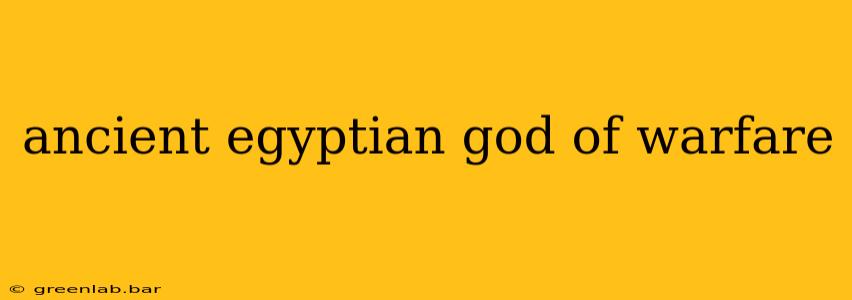The ancient Egyptians, a civilization renowned for its intricate mythology and powerful deities, revered many gods associated with war. While several gods held aspects of warfare within their portfolios, Montou (or Montu) stands out as the most prominent and widely worshipped god specifically dedicated to war. This blog post delves into the multifaceted nature of Montou, exploring his origins, iconography, attributes, and significance in ancient Egyptian society.
The Origins and Evolution of Montou
Montou's origins are shrouded in some mystery, with his worship tracing back to at least the Early Dynastic Period (circa 3100-2686 BCE). Initially, he was a relatively localized deity, primarily worshipped in Thebes (modern Luxor). However, as Thebes rose to prominence, so did Montou's influence. He became inextricably linked to the city's military might and eventually transcended his regional origins to become a national god of war.
Interestingly, his early iconography suggests a connection to falcon-headed gods like Horus. Over time, however, Montou's representation evolved. He is most commonly depicted as a falcon-headed god, often wearing a solar disk and plumes atop his head, symbolizing his association with both warfare and the sun's power. This fusion highlights the ancient Egyptian belief in the divine right of kingship and the sun god's role in bestowing victory in battle.
Attributes and Iconography of the War God
Montou's iconography reinforces his powerful nature. Beyond the falcon head, he is sometimes depicted wielding various weapons, including spears, bows, and arrows. These visual representations highlight his role as a fierce warrior, a protector of Egypt, and a bringer of victory in battles.
He was also often associated with specific animals, further enriching his symbolic representation. The bull, representing strength and power, was a common animal connected with Montou. In some depictions, he's even portrayed as a bull-headed god, showcasing the diverse and evolving nature of his visual representation across different periods.
Montou's Role Beyond Warfare
While primarily known as a war god, Montou's influence extended beyond the battlefield. He was also seen as a god of hunting, a reflection of the importance of hunting in ancient Egyptian society. The skills and strategies employed in hunting were often seen as parallels to those needed in warfare, further strengthening this association. His association with hunting, therefore, provided a broader context to his role as a provider and protector of Egypt.
Montou's Significance in Ancient Egyptian Society
The worship of Montou was deeply ingrained in ancient Egyptian society. Temples dedicated to him were numerous, particularly in Thebes, and his image appeared on countless artifacts, including amulets, statues, and tomb paintings. Soldiers and warriors sought his favor before battle, praying for protection and victory. The Pharaohs, as the supreme military leaders, often identified closely with Montou, further solidifying his importance within the state's religious and political structures.
The prominence of Montou showcases the significance of warfare in ancient Egyptian life. The power of his image and the widespread devotion to him underscores his crucial role not only as a god but also as a symbol of Egypt's military strength and national identity. His story is a fascinating glimpse into the rich and complex religious beliefs of one of history's most influential civilizations.

